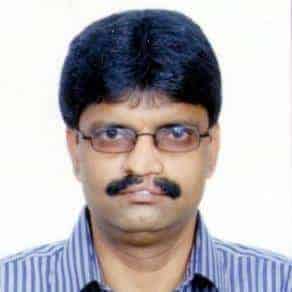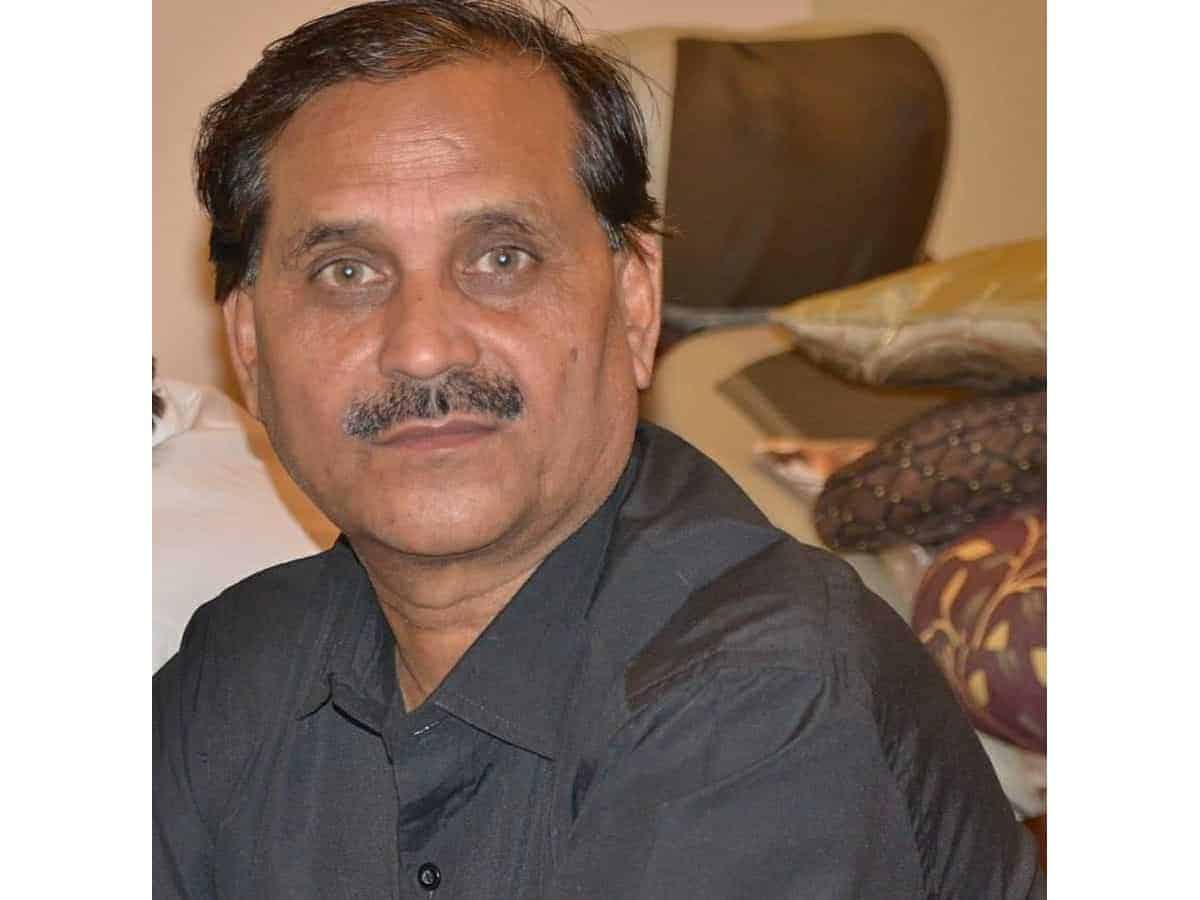
Anwar Khan, we will miss you.
How can one write obituary of a friend for years? How can one summon courage and strength to address him in the past tense when you feel his presence so powerfully?
Crazy Corona, you claimed yet another nice human being. This time you hit a dear friend. In the passing away of Anwar Khan we the Aligs (alumni of Aligarh Muslim University) in Mumbai have lost a fellow Alig, a fine gentleman, a lively and lovely person. My heart goes out to his wife and three children (two sons and a daughter) whose loss is tremendous. Incalculable indeed! He was just around 55, not an age to go. But then who has intervened and helped postpone the departure of a mortal if God wants him/her? Urdu poet Mirza Shauq Luckhnowi captured death, the ultimate truth, in an enchantingly beautiful couplet:
Maut se kisko rustagari hai/Aaj woh kal hamari baari hai
(Who has escaped death/Today it is he, tomorrow it will be we).
Why do Muslims recite Innalillahe wa inna alaihe rajeoon (Verily we belong to Allah, and verily to Him do we return) upon hearing death of a person? They do so to reiterate God’s supremacy and seek His blessings for the departed. So I uttered the Quranic words instinctively as I heard of Anwar Khan’s death.
Anwar Bhai, as we called him, came in my contact around two decades ago. Maharashtra College near Nagpada in Mumbai had organized a seminar on education. Anwar Bhai used to work with Jeddah based Islamic Development Bank then and was at the seminar as one of the resource persons. They wanted me to motivate college students in a session just before the luncheon break. “Nobody wants to listen a lecture when we all know lunch is waiting for us,” I said. The young boys and girls laughed. For 10-15 minutes I kept giving them “gyan” on how to remain positive even in the face of odds. They seemed to have enjoyed my “sermon” which I laced it with humour and sarcasm.
At the lunch Anwar Bhai came up to me and introduced himself. Hailing from Siwan (Bihar), he had done MA (History) from AMU and came to Mumbai over two decades ago. He was at AMU during one of its most tumultuous times. Saiyid Hamid was the VC (1980-1985) and, as any Aligarian will tell you, no VC of AMU can claim he had smooth sailing at the university. Hamid sahab was no exception and he was duly maligned, gheraoed, pooh-poohed and his house picketed. He had to call the police inside the campus to control the mob and a student died in the unfortunate police firing. Anwar Bhai would tell me he was never part of any such agitation and would keep himself busy with books. I couldn’t have verified that.
He would often talk about one of his classmates who was not very bright but had the confidence to crack the Civil Services Exam. Seated at AMU’s massive Maulana Azad Library, the friend once told Anwar Bhai: “I am preparing for the Civil Services Exam and you can write it somewhere if you so wish that I am going to join IPS.” Main to IPS banne ja raha hooN,’ is how the friend declared to Anwar Bhai. “He did become an IPS officer,” Anwar Bhai told me. The same friend had told Anwar Bhai to prepare for the Civil Services Exam but Anwar Bhai was a bit idealist and didn’t listen to him. The activist in him stopped him from choosing a career which would bind him to certain rules. “If I had tried, I too would have qualified for the Civil Services,” he would often say.
He had missed many other opportunities. He once told me that a very senior professor advised him to do M Phil and become an ad hoc lecturer at AMU. He didn’t listen to him too. Subsequently Anwar Bhai tried to sell fruits in partnership with a few friends but incurred a huge loss and quit the business. He worked for IDB for many years but quit it too, disappointed and disenchanted. “I realized it after working with a so-called hamdard (well- wisher) of the quam that they only know how to exploit you. I felt I was used and I parted ways only after giving some of the golden years of my life to IDB,” he once said.
His was not the unique experience. It has happened with many and may happen with others in future too. Most of us realize our follies only after we have lost everything. The famous Lata Mangeshkar song in the film Ek Saal aptly captures this condition:
Sab kutchch luta ke hosh mein aaye to kya kiya
Din meiN agar charagh jalaye to kya kiya
He was still associated with IDB when I first met Anwar Bhai. Deeply disappointed, he quit and began looking for a new job. Working in an office 9 to 5 was beyond his taste and capacity. He wanted to do something of his own. He setup a security agency business and simultaneously began a small real estate business in partnership. He said the partners duped him of around Rs 10 lakh, a big amount for a man who had to run a family of five. For years he rented a room at the railway staffers’ colony at Andheri East. Over the years the constant rattle of the running trains at nearby tracks had stopped disturbing him. He had acclimatized himself to the hustle and bustle of the city life and stopped complaining. We thought he was quite settled. Then one day before the lockdown began he announced he had moved to another rented house at Jogeshwari West.
What I will miss most about Anwar Bhai is his phone calls. No calls of him lasted less than 20 minutes. He had developed a deep milli shaoor (community conscience) and would often share his concerns. When the pandemic-induced lockdown began in the last week of March this year, Anwar Bhai began reaching out to people in need.
One day he called me to inform that over two dozen migrants from Bihar at a slum in Malad were in urgent need of ration. “Bhai,unlogon keliye kutchch karo. Bhuke mar rahe hain (Brother, do something for them. They are starving),” he urged. I immediately called up my friend Malad (West) MLA and Mumbai’s guardian minister Aslam Shaikh. He asked for the list of needy migrants. I took it from Anwar Bhai and sent it to Shaikh on his WhatsApp. Help reached the hungry folks in a few hours.
He would actively participate in organizing our annual Sir Syed Day function. At one of the Sir Syed Day’s dinners, he was tasked to take care of the guests when they reached the dining area. He didn’t budge from there till the last guest had eaten.
I spoke to him last on Tuesday evening. He said he was at a hospital near his home and would be fine in a few days as the fever had subsided. Since I had recovered from Covid earlier, I told him not to worry much about low-grade fever as it keep coming for some time post-recovery too. He was happy to know that Dr Kafeel Khan had got bail and was about to be released from Mathura Jail. I counseled him not to talk much as he needed rest. I promised to call him again.
This morning I called him but it remained unanswered. I thought either he was not in his bed or perhaps his condition had deteriorated and he was moved to ICU where mobile phones are not allowed. I didn’t know Anwar Bhi would never answer my call. It was Ghalib who eloquently said:
Jaate hue kahte ho qayamat ko milenge
Kya ḳhoob qayamat ka hai goya koi din aur
While leaving you say, will meet on doomsday
Wow! You think doomsday will be some other time?
Mohammed Wajihuddin, a senior journalist, is associated with The Times of India, Mumbai. This piece has been picked up from his blog.

